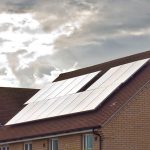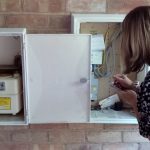
How to get cheaper hot water on tap
News that an investigation has been launched into how the water companies handled the recent bad weather, which left businesses and thousands of homes without water for up to three days, has been welcomed by a Midlands expert.
Ron Fox was commenting after the Government encouraged regulator Ofwat to consider whether statutory compensation should be paid following the freezing conditions.
He said: “To be left without a vital public service such as water for several days is deeply distressing, particularly for the vulnerable and elderly living on their own.”
The regulator said that the firms had “fallen well short” and will look into how prepared they were and what support they offered to customers. Both suppliers and customers affected will contribute to the review and the findings are due to be published by June 15
The privatised water companies are obliged to compensate customers who have had their supply disrupted and already householders affected should have received their letter.
Ron, of Noreus Ltd, advised anyone who had been without water to contact their supplier if they hadn’t heard from them.
He said although there was little more residents could do about the effects of the bad weather they could do a lot to reduce their ever increasing water bills by using green technology. He suggested two solutions.
Firstly, they could have a solar assisted heat pump, also known as a thermodynamic solar system, installed which would provide hot running water every day of the year from 90p a week.
It works by absorbing heat from the atmosphere using an aluminium collector fitted to the house wall or roof, plus a unit which is installed in the cylinder cupboard or loft.
The thermodynamic panel absorbs heat from the atmosphere and the refrigerant fluid transforms into a gas. It moves to the thermodynamic unit which compresses it into hot fluid again, before going through an exchanger to heat the water in the nearby cylinder. The fluid then passes through a valve into the box where it returns to the outside collector, ready to begin the whole operation again.
Or secondly, solar thermal panels use heat from the sun to warm the hot water. Hardened glass collector panels fitted to the roof absorb energy from the sun, which heats up water inside the collector and is then pumped through a cylinder, giving hot water whenever the taps are turned on.
“Sunlight is obviously free so once you have recovered the cost of the system your water costs will be significantly lower,” said Ron.
“The advantages of both these environmentally-friendly solutions,” he added, “are that they reduce your carbon footprint; provide hot water 24/7 whatever the weather; they never overheat nor freeze and there is minimum maintenance and a full guarantee.
“More importantly, the initial cost of the systems are recovered within the first few years; they take only a day to install and they can reduce your domestic hot water energy bill by up to 90 per cent.”
For more advice contact Ron on 01782 756995 or go to www.noreus.co.uk




